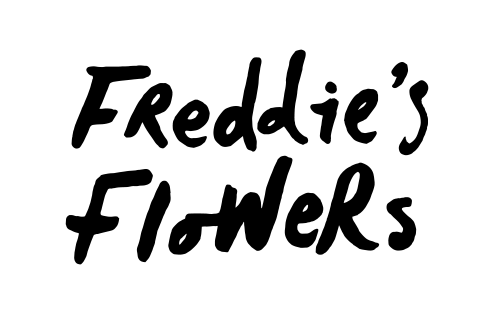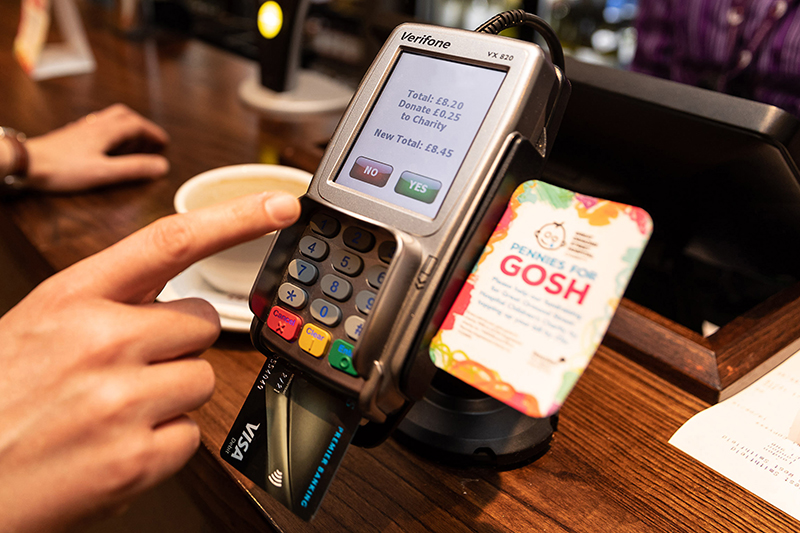Over £260,000 raised by The Restaurant Group through Pennies micro-donations is helping fund life-saving support via Shout’s 24/7 text service. Every penny donated by customers means someone in crisis, like Sophie, gets the help they need.
Are ‘fewer Brits are giving to charity’ or is there a shift in donation behaviour?
According to Charities Aid Foundation’s (CAF) latest annual giving report published last week, the amount of Brits donating money to charity has fallen once more – dropping from 61% in 2016 to 57% in 2018. Why is Britain seeing a decline in charitable donations? Is it public trust, economic uncertainty, or a shift in the way the public are choosing to donate to charity?
Our latest research suggests that it isn’t a case of people not wanting to give to charity but more about a shift in how people are giving. Our findings show that 77% of the public just prefer to give in small amounts, when they feel like it and most people are encouraged to give to charity when there is no commitment and when they know the impact that will be made from their donations.
Many, including CAF, have suggested that the decline in charitable donations and activity is due to a decrease in trust in the not for profit sector, in part due to high profile coverage of stories about scandal and safeguarding issues. According to Susan Pinkney, Head of Research at CAF, people “worry that their hard-earned money is not being well spent when donated to charities”.
That said, it’s not clear that trust is a contributing factor across all donor groups. The Sunday Times Giving List – also in association with CAF – was released last weekend, and reported a decline in the number of philanthropists donating more than 1 per cent of their salary to charity. This shift is likelier due to wavering donor confidence against the backdrop of economic uncertainty. The National Council for
Voluntary Organisations (NCVO) has approached the findings from a different angle – perhaps requiring a change in the way charities fundraise and ask for funds. The NCVO has highlighted that since the introduction of GDPR, many charities and fundraisers have worked hard to clean donor lists and supporter databases. This in turn has had an effect on the amount of people being asked to give to charity, causing a knock on effect to the amount of people donating too.
Our Findings
In findings from our own research – polling over 2,020 UK adults in 2018 – 48% of people said they would be less likely to donate to charity if they read negative stories about the governance or practice of a charity in the press. Meanwhile 53% of people said that if a charity passed on their personal details to other organisations, the likelihood of them donating would decrease too. This suggests both CAF and NCVO are onto something, and that the decline over the last three years is down to a mixture of both declining trust in the charitable sector and people exercising more caution over their personal data; now supported and governed by GDPR.
Here at Pennies, our research suggests that the most common way of giving in the UK remains dropping a few coins in a collection box. It suggests that people prefer to give small amounts when they feel like it, in the confidence that there will be no follow up from the charity to ask for further donations. In addition, only 20% of people like giving regularly to specific charities, for example by Direct Debit, which reinforces the preference for ad hoc giving.
All of which would explain collection boxes being top of the list. But with the decline in cash use, we are seeing fewer collection tins on shop-counters – and fewer pennies dropped into those remaining tins as the move to digital payments across all shopping channels takes hold.
Shifting to digital donations
Giving via Pennies is ad-hoc and data-free – our digital charity box has simply digitised the most common way of giving in the UK. We are currently seeing over 2,000 consumer donations through Pennies per hour, and we have raised over £18,000,000 from over 73,000,000 micro-donations – and counting. This suggests people aren’t necessarily choosing not to give to charity altogether, but are changing the way they give in order to fit in with their daily lives.
37% of people said they would be more likely to donate to charity if they knew their personal data wouldn’t be collected – suggesting that charities need to embrace a post GDPR landscape and offer ways for people to donate in a convenient way without needing to share their data.
Rebuilding trust and changing lives
Public trust may have affected the amount of money giving directly to charities but there is good news too. Yes, donation habits are changing and there is flux as the charity sector shifts its focus to digital fundraising. And at Pennies we are finding that the generosity of the UK public continues to exceed our expectations at a time we know is challenging for the high street.
As Pinkney suggests, in order for the public to trust the sector again, charities need to rise to the demand and be more transparent. We couldn’t agree more, and think it’s crucial to share how donations are making a meaningful difference to the charities that benefit from Pennies’ donations. This is not just about transparency, but also about illustrating how donating through Pennies makes you part of something bigger – a community of givers across the nation that are making a difference with every micro-donation, as part of their daily lives.
We know small change donations add up – just a lunchtime of Pennies donations at Greene King pubs and restaurants can fund 12 hours of a Macmillan Cancer Support Nurse. Just three hours of donations made by Adnams customers can fund a 1-2-1 support session for someone with young onset dementia for Young Dementia UK. Sharing these stories helps show donors that their money is valued and used to create remarkable change – and, we hope, shows that charities are worthy of the trust and support they gratefully receive every day.
Read more from Pennies.
Martin Newman Joins Pennies to Inspire Brands and Shoppers to Make Every Payment Count
As consumers increasingly seek meaningful, affordable ways to give back, Pennies, the award-winning fintech charity which enables micro-donations to charity, has today appointed renowned consumer advocate and business leader Martin Newman as its new official ambassador.
Iceland Foods Partners with Pennies to Make Fundraising For ‘Calm’ Easier This Charity Week
Iceland Foods has joined forces with fintech charity Pennies to make it even easier for customers to support suicide prevention charity Campaign Against Living Miserably (CALM) this Charity Week (10 – 17 May 2025).
Pennies Announced as Gold Charity Partner for Retail Technology Show 2025
Pennies, the trusted leader in micro-donations, is proud to continue its longstanding partnership as the official Gold Charity Partner for the Retail Technology Show 2025, taking place on 2-3 April at ExCeL London.













0 Comments